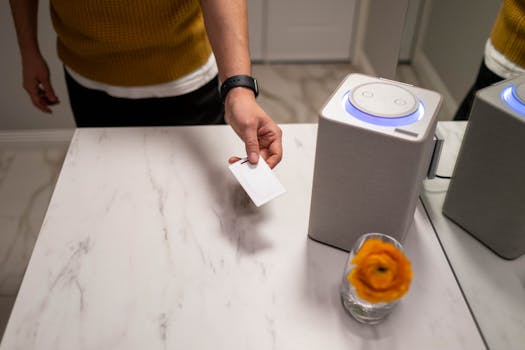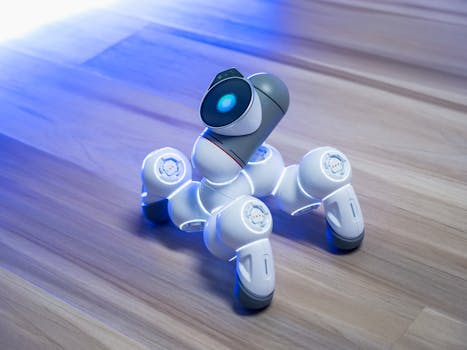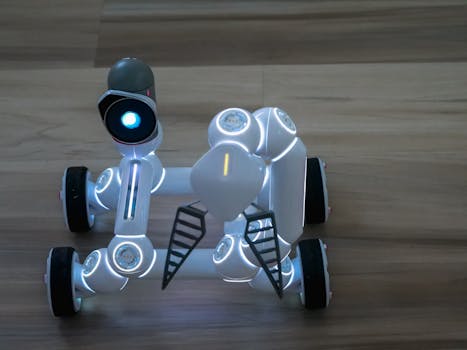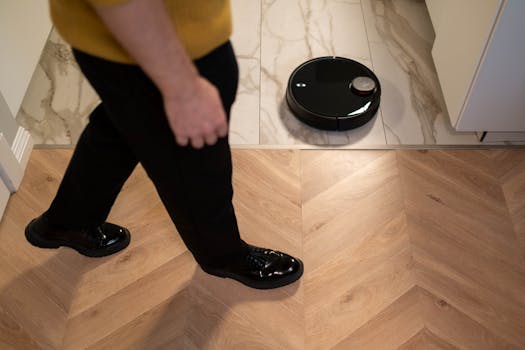
Smart Homes 2025: The Rise of Smart Homes 2025: The Rise of AI-Driven Devices
Smart homes have been a topic of interest for several years now, but with the advent of AI-driven devices, the concept has taken a whole new dimension. Smart Homes 2025: The Rise of AI-Driven Devices is expected to revolutionize the way we live, making our lives easier, more convenient, and more enjoyable. In this article, we will explore the concept of smart homes, the role of AI-driven devices, and what we can expect in the future.
What are Smart Homes?

A smart home is a residence that is equipped with advanced technology to make it more comfortable, convenient, and energy-efficient. Smart homes often include features such as thermostats, lighting systems, security cameras, and entertainment systems that can be controlled remotely using a smartphone or voice assistant. The main goal of a smart home is to provide a seamless and intuitive experience for the occupants, while also saving energy and reducing waste.
The Role of AI-Driven Devices

AI-driven devices are the backbone of smart homes. These devices use artificial intelligence and machine learning algorithms to learn the habits and preferences of the occupants and adjust their behavior accordingly. For example, an AI-driven thermostat can learn the temperature preferences of the occupants and adjust the temperature accordingly, while also taking into account the outside weather and the energy usage patterns. Similarly, AI-driven security cameras can detect suspicious activity and alert the occupants or the authorities.
Benefits of Smart Homes

The benefits of smart homes are numerous. Some of the most significant advantages include:
- Energy efficiency: Smart homes can help reduce energy consumption by optimizing the usage of lighting, heating, and cooling systems.
- Convenience: Smart homes can make life easier by allowing occupants to control various devices and systems remotely using a smartphone or voice assistant.
- Security: Smart homes can provide an additional layer of security by using AI-driven devices to detect suspicious activity and alert the occupants or the authorities.
- Comfort: Smart homes can provide a more comfortable living experience by adjusting the temperature, lighting, and entertainment systems to the occupants’ preferences.
Future of Smart Homes

The future of smart homes is exciting and promising. With the advancement of AI-driven devices and the increasing demand for smart home technology, we can expect to see more innovative and integrated solutions in the future. Some of the trends that are expected to shape the future of smart homes include:
- Increased use of voice assistants: Voice assistants such as Alexa and Google Assistant are expected to play a more significant role in smart homes, allowing occupants to control devices and systems using voice commands.
- Greater emphasis on security: As smart homes become more prevalent, there will be a greater emphasis on security to protect the occupants and their data.
- More integrated systems: We can expect to see more integrated systems that combine different devices and technologies to provide a seamless and intuitive experience.
Conclusion

In conclusion, Smart Homes 2025: The Rise of AI-Driven Devices is expected to revolutionize the way we live, making our lives easier, more convenient, and more enjoyable. With the advancement of AI-driven devices and the increasing demand for smart home technology, we can expect to see more innovative and integrated solutions in the future. As we move forward, it’s essential to consider the benefits and challenges of smart homes and to ensure that we are creating a future that is convenient, comfortable, and secure for everyone.






